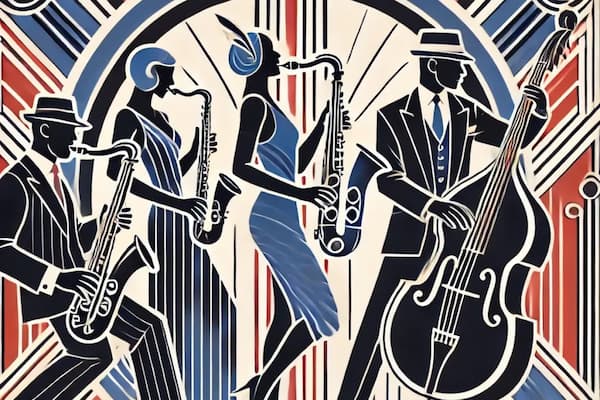In 1929, Ernst Krenek spent his summer holiday in the Austrian Alps. He called that trip, “a pilgrimage to the sacred shrines of Austria’s landscape and history” and he immediately set to work on a travelogue celebrating the landscape. He wrote in his autobiography later, “It was the only time in my life that a work of mine was so obviously and directly inspired by experience. I decided on the spot to write a song cycle that would capture what I had just experienced. A few days after my return, I began to compose Reisebuch aus den österreichischen Alpen and I finished its twenty songs in as many days.”
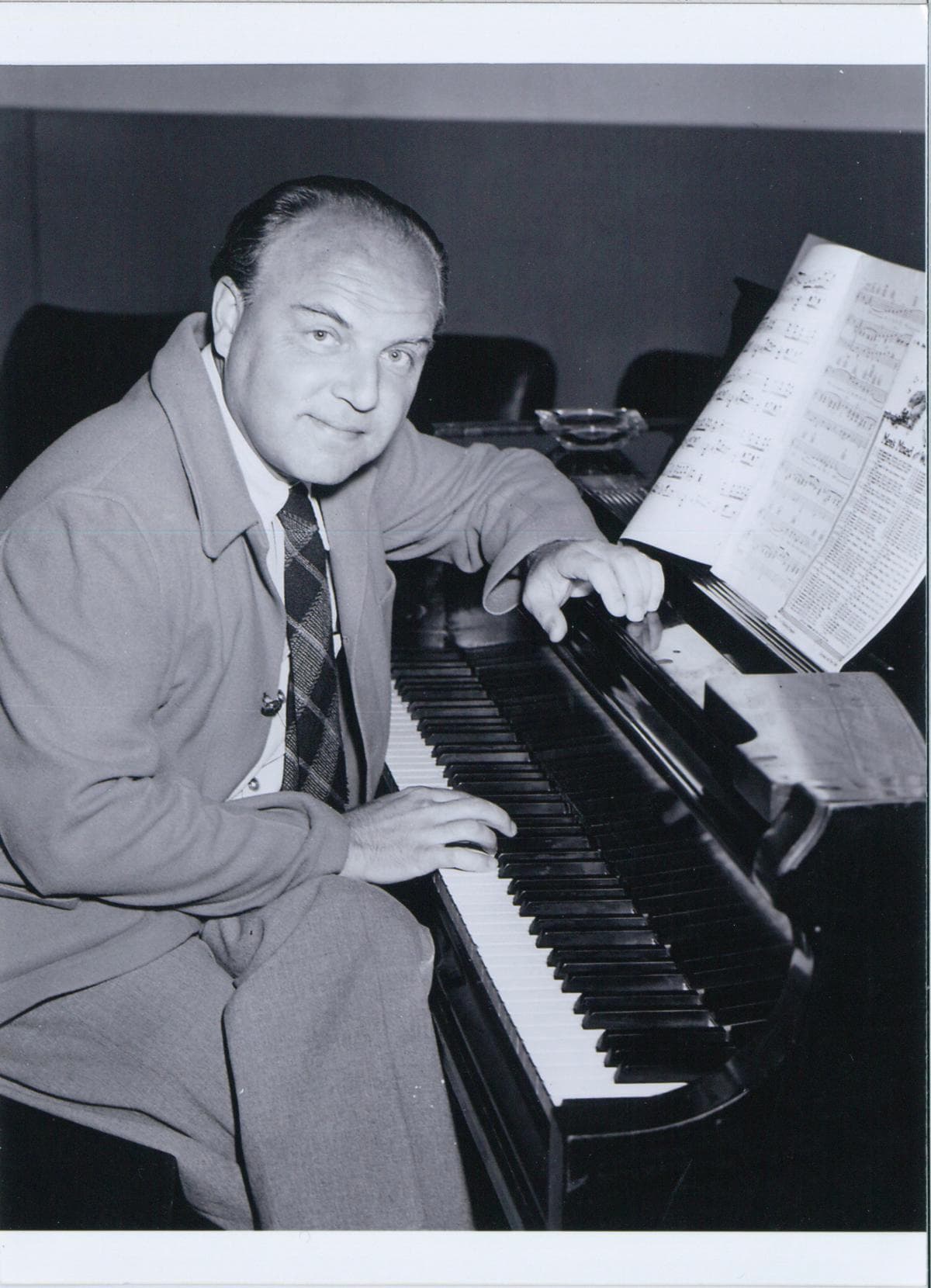
Ernst Krenek
Naturally, Krenek also found inspiration in the lieder of his compatriot Franz Schubert, explaining, and “we can best learn that highest vitality, which is constant variability and subtlest delicacy of expression achieved by the greatest economy of means. A change to the minor, for example, is in Schubert an unusual musical experience.” As a critic wrote, “taking his lead from his predecessor’s vast output of wandering song, Krenek decided to offer his own unusual musical experience in a diary celebrating the landscape and poetry of Schubert’s world, while commenting on his own.” Krenek himself wrote the text, and his double talent as a composer and poet/writer makes him a unique figure in twentieth-century music history. By the way, Richard Stokes has crafted the excellent English translations of the text that I use in this blog. The overall structure of his “Travelogue” takes the form of a novella, and as listeners we become Krenek’s traveling companion and a witness to the unfolding panoramas.
Ernst Krenek: “Motiv” (Wolfgang Holzmair, baritone; Gérard Wyss, piano)
I set out to discover my homeland.
That’s what we humans do:
lack of faith in ourselves is deeply rooted within us,
what others find self-evident, is for us a problem:
whether home for us means where we were born.
—————
we wander here and there, seeking ourselves and our homeland
and end up knowing almost everything—
except the country we belong to….
So I set out wondering whether I’ll find it:
my fatherland.
This yearning and succession of backward glances is in line with Schubertian models, but it is quickly interrupted by humorous descriptions of “Traffic,” with the 20th century and its modern vehicles swiping away any sense of sentimentality.
Ernst Krenek: “Verkehr” (Wolfgang Holzmair, baritone; Gérard Wyss, piano)
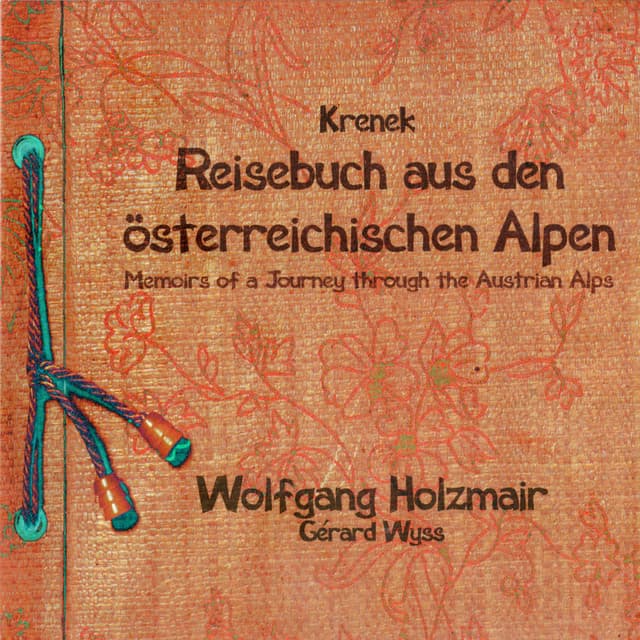
Ernst Krenek’s Travelogue from the Austrian Alps
A monastery is immovable nestling in a valley. The monks have all the latest gadgets, including electric light and telephone, but they are not slaves to technology. They tend to their library and provide tours for tourists. But in the evening, they drink wine in the monastery cellar. The text and the music ponder whether they have not actually found peace and tranquility?
Ernst Krenek: “Kloster in den Alpen” (Wolfgang Holzmair, baritone; Gérard Wyss, piano)
Uncongenial, this Alpine weather,
neither cosy nor compliant to a traveller’s wishes.
Unreliable as a delivery man,
it changes from hour to hour,
from valley to valley.
————————
Suddenly the skies brighten in the evening,
you feel certain next morning will be fine,
but at dawn it’s raining again …
Ernst Krenek: “Wetter” (Wolfgang Holzmair, baritone; Gérard Wyss, piano)
Descriptions of picturesque locations alternate with songs depicting lingering and reflective movements and mediations. At the beginning of “Traurige Stunde,” Krenek writes, “Not every day of travel is good and festive,” and the diatonic accompaniment becomes increasingly chromatic, leaning towards atonality.
Not every day of travel is good and festive,
sometimes I am assailed by anxiety,
unfounded restlessness, and my heart grows heavy.
Is it not presumptuous, to set out merely from curiosity,
to intrude into other people’s lives,
merely to see how things are there?
What if they were to ask:
‘Now then, stranger, newcomer!
What do you bring us? What do you want here?
No useful business? No reason? Mere curiosity?’
What then?
Ernst Krenek: “Traurige Stunde” (Wolfgang Holzmair, baritone; Gérard Wyss, piano)
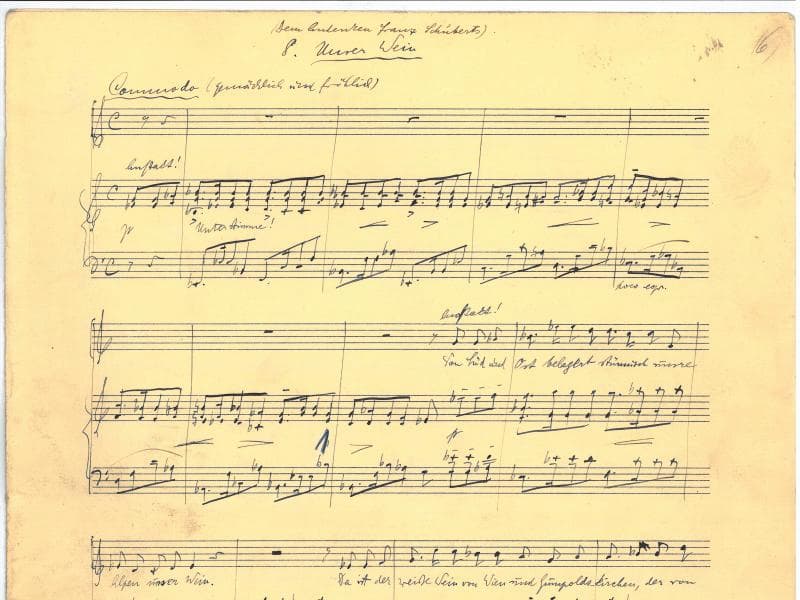
Ernst Krenek’s Travelogue from the Austrian Alps autograph
Next, we discover a graveyard in the mountains, where even the dead in the small churchyard have to lie downhill, since the flat ground has to serve the living. This postcard closes the first volume of the “Travelogue” on a decidedly mortal note.
Even their final rest is thus half-standing,
and as hard and laborious as their bitter life.
On the arid surface of the graves scrawny hens peck for food,
children’s clothes hang drying on the crosses.
And this disturbed rest is not even ‘eternal’
since after ten years the remains are dug up again,
when a new corpse is flung into the pit…
Ernst Krenek: “Friedhof im Gebirgsdorf” (Wolfgang Holzmair, baritone; Gérard Wyss, piano)
The second part of the cycle opens with “Rainy Day,” in which the weather, a major enemy to bygone wanderers, is now just a slight hindrance, as described by the gentle but insistent chromatic trickle in the piano.
There are rainy days that are very beautiful.
In the morning, between eight and nine,
the sun appears, shining through damp veils.
Soon it vanishes
and the clouds descend in ever increasing gloom.
———————-
In the afternoons I sit by the window,
the dark wine glints in the carafe,
you savour it at leisure, simply to pass the time.
O wondrous day of rest, the peaceful sound of rain on the roof,
And idleness that only here you can relish!
Ernst Krenek: “Regentag” (Wolfgang Holzmair, baritone; Gérard Wyss, piano)
“Our Wine” is dedicated to the memory of Franz Schubert. It is cast in the key of E-flat major, the heroic key, as Beethoven would have it. It also seems to have been one of Krenek’s favorite keys. In a number of his works E-flat major seems to engage in gathering recollections and simultaneously pointing into the distance. This tipsy drinking song opens squarely within diatonic parameters, but as more and more wine is consumed, tonality starts to break apart. It only returns in the final image of a vineyard perched high in the hills.
Ernst Krenek: “Unser Wein” (Wolfgang Holzmair, baritone; Gérard Wyss, piano)
What have I gained so far from all this?
Inner peace has not yet come to me.
Things are not easy for us in these days of conflict.
City-born, following the bustle of existence,
we see everywhere out there in the mountains
the unattainable sources of life—
evidence in every house of better times
when we were still close to nature.
Have these ties really been severed for us once and for all?
Must we then accept the disintegration of life’s worth,
the coarsening of humankind?
Who can tell us where we belong? Where?
Ernst Krenek: “Rückblick” (Wolfgang Holzmair, baritone; Gérard Wyss, piano)
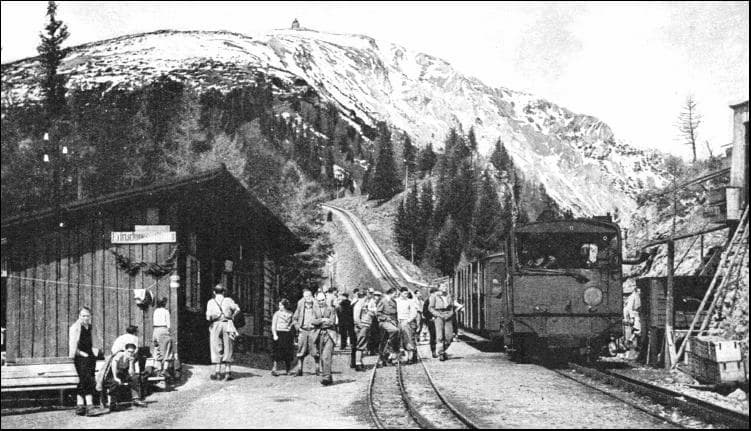
“Up and Down” offers a mocking glance at his fellow travelers, who “rush up and down like fools as if hounded by some ancient curse.” They photograph each other and see nothing because they must write postcards. Above all, they are bitter rivals for parking spaces, restaurant tables, food, beautiful views, and hotel rooms. Krenek writes, “The pointlessness of their endeavors can be read on their sullen faces.” It’s frightening, actually, how little has changed…
Ernst Krenek: “Auf and ab” (Wolfgang Holzmair, baritone; Gérard Wyss, piano)
The folkloristic potpourri “Alpenbewohner” musically describes a buzzing tourist center, “inhabited by wild nomads who like grasshopper cover the countryside.”
With indescribable banality they yell loudly
and clearly into the landscape,
as though they wished to wake the mountain kobold.
Seldom do you see native people dull and bored,
they observe the horror
and silently calculate the profit they will coax
from the pockets of these strangers from the north.
——————
If only we had an ‘English church’
and an ‘Alpine golf course’ here
(with eighteen holes), they would fit in charmingly with the whole.
——————-
The end of the world must be like that!
Ernst Krenek: “Alpenbewohner” (Wolfgang Holzmair, baritone; Gérard Wyss, piano)
The increasing popularity of Nazism also left its mark on Austrian affairs of the late 1920s. Like many artists, Krenek perceived the threatening nature of this movement. Demanding questions thus form his query in “Politics.” Krenek asks, “are we punished for our sins with incurable insanity? Have we completely forgotten how to live for life’s sake?” Krenek had experienced the period prior to World War I as an epoch of great peace. As such, we find in “Politics” the admonitory lines, “Be mindful, brothers, of the time when thousands of men fell in battle every day, delivered over to wantonness! You brothers, send the bloody fool home once and for all, end the masquerade of death, for enough is enough.”
Ernst Krenek: “Politik” (Wolfgang Holzmair, baritone; Gérard Wyss, piano)
“Tunderstorm” washes away human shortcomings with a torrential rain heard in a furious piano part.
Suddenly the sky turns black between the white peaks,
clouds, yellow and dangerous, close in from every quarter.
The heavens send down torrents, the thunder rolls roaring from summit to summit
Horrified, with wet feet, sore, with not a stitch of dry clothing,
the ridiculous city-slicker flees towards the valley
and thinks with justification that nature is not for him.
Come, O storm, and cleanse us from stupidity, wickedness, creeping nastiness!
Clear our heads once more, so that the mind’s rainbow might shine forth!
The trees roar mightily, the brooklets swell dark brown,
black destruction hangs over us!
But high up, far above the veil of rain, blue sky shimmers,
and the highest peaks tower up like ghosts.
Light now cascades violently down
from the glittering peak onto the glacier,
passing monstrous abysses of black shadows,
and the sun fills the valley with boundless radiance.
Ernst Krenek: “Gewitter” (Wolfgang Holzmair, baritone; Gérard Wyss, piano)
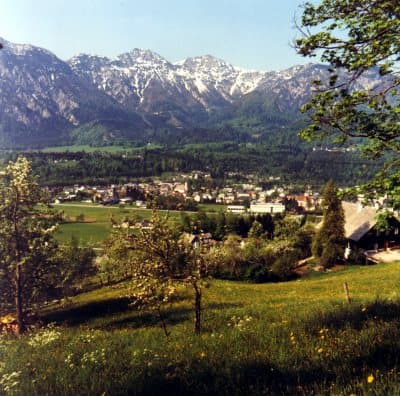
Bad Goisern, Austria
“Homesick” returns us to a contemplative mood with the author wishing to be back in his home city of Vienna. Yet, he understands that “all is simple and honest, vast and violent in these Alps too. There, however, is still wreathed in secrecy, the spell of dark, tangled, splendid history of the city.” He muses that even if the entire expanse appears shattered, the spirit would remain intact. “I shall remain faithful,” he exclaims, “as the spirit will be respected once more, when the madness of these times is over.”
Ernst Krenek: “Heimweh” (Wolfgang Holzmair, baritone; Gérard Wyss, piano)
A “hot day at the lake” in the Southern Alps spreads mild and southerly sunshine with unfamiliar heat. Evoking a feeling of safety and grace the author hears the singing voice of woman as it floats across the lake. “Only a little fish leaps occasionally with a gentle sound over the water. Is this perhaps the Promised Land? Is this perhaps the homeland I seek?
Ernst Krenek: “Heißer Tag am See” (Wolfgang Holzmair, baritone; Gérard Wyss, piano)
In “Small town in the Southern Alps” the listeners has the impression that he is strolling thought the narrow streets, often stopping to rest because of the sweltering heat. As our attention is directed to the gently rolling hills outside the town, the music gradually quickens its pace, issuing in a rollicking imitation of a band, which does not always play correctly, and offers an enthusiastic and spirited praise of the merry town.
Ernst Krenek: “Kleine Stadt in den südlichen Alpen” (Wolfgang Holzmair, baritone; Gérard Wyss, piano)
The wanderer next turns his gaze across the mountains to Italy, where “life’s eternal truth, floating existence, grace in heaven and was bestowed on earth. “Over the mountains lies Italy,” he muses, “not my homeland.” He quietly ponders if he might be happier there, or if happiness is merely an illusion.
Ernst Krenek: “Ausblick nach Süden” (Wolfgang Holzmair, baritone; Gérard Wyss, piano)
Longing will never cease to gnaw, because we like that!
‘Longing for what?’
For a different life, for different times,
When nature and man are one and everything happens in harmony!
‘Believe me, believe me, dear soul, such is not granted us! Never was.’
But I shall always desire it, though it be impossible!
‘Love the world as it is! Love yourself as you are!’
No liberation?
‘None!’
Then I shall live in the freedom of the spirit
that chooses which way to go,
I shall love my fate, as it befalls me,
and always long for the new, for as long as my little light glows!
Ernst Krenek: “Entscheidung” (Wolfgang Holzmair, baritone; Gérard Wyss, piano)
A fast train carries the author home as the journey has ended. Fields whizz past, as do forests, small towns, castles, and chapels. He experiences the pain of transience, “as each goal is a new beginning. And so I shall set out again and do so with pleasure.”
Ernst Krenek: “Heimkehr” (Wolfgang Holzmair, baritone; Gérard Wyss, piano)
The travelogue hints at a process that begins within narrow limits and ventures out into infinity. Krenek’s path to serialism was a long and arduous one, but the musical challenges he faces are only visible in the beginning of the “Epilogue.” A series of twelve different tones accompanies the words “On the day after my return I proceed through the wine village east of the city.” Krenek creates the overwhelming impression of a sudden and unexpected calling into question of the whole previous course of the cycle. The path of the “Epiloque” leads to a tavern and the cycle concludes with a resounding E-flat major crescendo. Krenek leaves the basic question unanswered, “I do not wonder that I am, despite everything, happy!” Like thousands of people, Krenek was forced to leave his “Homeland” in early 1938, when Hitler annexed Austria.
For more of the best in classical music, sign up for our E-Newsletter
Ernst Krenek: “Epilog” (Wolfgang Holzmair, baritone; Gérard Wyss, piano)


